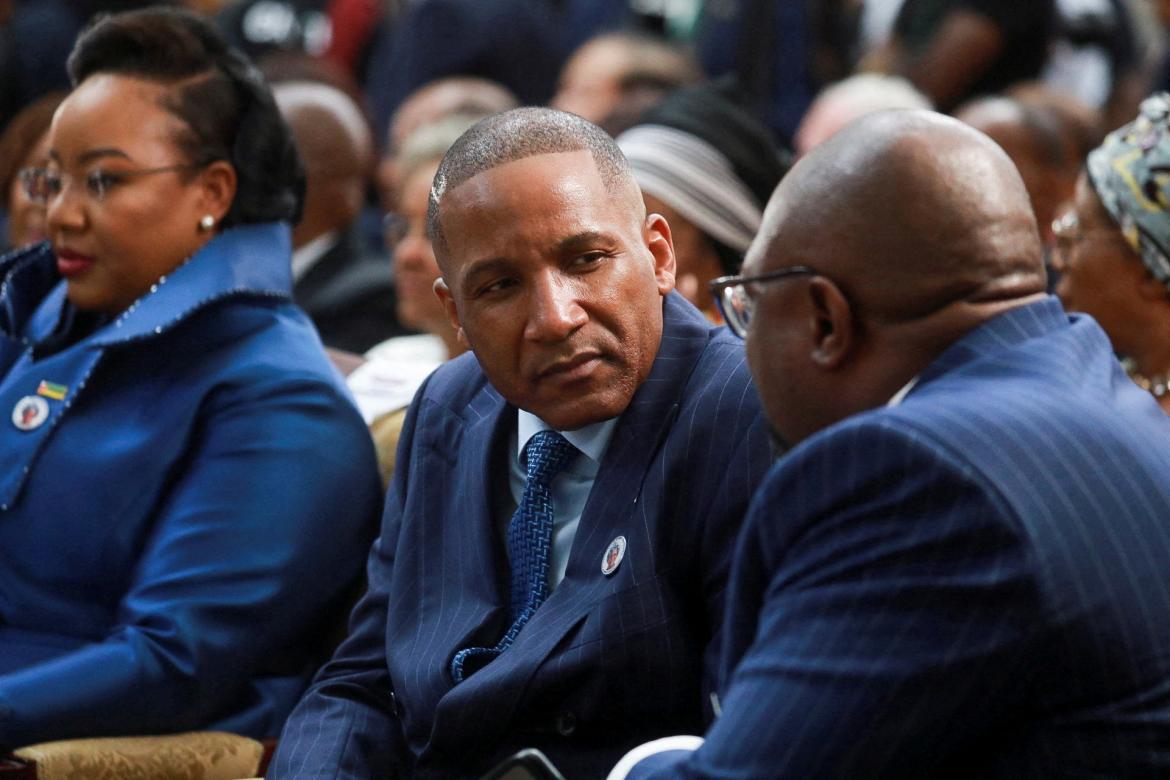Africa-Press – Botswana. The Botswana government has reported progress in distributing medicines to various parts of the country following President Duma Boko’s declaration of a State of Public Health Emergency two weeks ago, amid ongoing efforts to tackle shortages blamed on alleged corruption by service providers.
The emergency, announced on 25 August 2025, came after widespread reports of critical shortages of medicines and medical equipment in hospitals and clinics across the landlocked nation. President Boko pointed to corrupt practices by suppliers, who allegedly charged inflated prices for essential items, leading to a collapse in the national medical supply chain. This crisis has strained healthcare delivery, leaving patients without vital drugs for conditions like HIV, tuberculosis, and chronic illnesses. In a televised address, Boko described the situation as a “severe disruption” that risked lives, prompting swift government intervention to stabilise supplies and root out graft.
Roots of the Crisis: Corruption and Supply Chain Breakdown
Botswana’s health system, once a model in Africa with universal coverage and low maternal mortality, hit rock bottom this year. The shortages stemmed from mismanagement at Central Medical Stores, the government’s procurement hub, where corrupt deals allegedly drained funds and delayed deliveries. Suppliers hiked prices for basics like antibiotics, painkillers, and diagnostic tools, forcing clinics to turn away patients or ration stocks. In remote areas like Maun and Ghanzi, the impact was dire—mothers couldn’t get postnatal care, and diabetics faced life-threatening gaps in insulin.
Boko, who took office in November 2024 after a narrow election win, blamed the previous administration’s oversight but vowed accountability. “The medical supply chain has failed,” he said, vowing probes into overpricing that plunged the country into this mess. Independent audits revealed irregularities worth millions of pula, with some contracts awarded to unqualified firms. The health ministry suspended several suppliers, and the Directorate on Corruption and Economic Crime launched investigations, arresting two executives in early September for fraud.
This isn’t isolated—Africa-wide, corruption siphons $10 billion yearly from health budgets, per the World Health Organization. In Botswana, where HIV affects one in four adults, reliable antiretrovirals are non-negotiable, making the shortages a national security issue.
Swift Action: Emergency Measures and Medicine Deliveries
The government moved fast after the declaration, which unlocked emergency powers to bypass red tape and secure supplies. Medical commodities have been rushed to all corners, from the bustling capital Gaborone to far-flung spots like Maun near Zimbabwe’s border and Kasane by Namibia. “Government took swift and strategic action to make sure that the public is provided with those critical medicines and medical commodities from the capital city to the furthest part of this country,” said Press Secretary of the Botswana Presidency, Emang Mutapati.
In Maun, a key tourism hub in the Okavango Delta, deliveries arrived within days, easing fears of outbreaks. Kasane, gateway to Chobe National Park, reported no missing items by early September. Mutapati highlighted the turnaround: “The likes of Maun, towards the border of Zimbabwe and the border of Namibia, medicine and medical commodities have already arrived. They were in Kasane, and the situation can be said to be stabilising. There wasn’t any medical commodity or medicine that was missing in Kasane.”
To boost stocks, Botswana secured 35 tonnes of vital supplies from IDA suppliers, based in the Netherlands but warehoused in the UAE. This shipment covers 85 lines of life-saving drugs, including antiretrovirals and cancer treatments, set to land soon. More procurements are underway from global partners like the Global Fund and WHO, which pledged $20 million in aid by mid-September 2025.
Health Minister Edwin Batshu confirmed over 80 per cent of clinics now have basic stocks, up from 40 per cent pre-emergency. Mobile teams are distributing in hard-to-reach villages, and rationing has eased, letting hospitals focus on care over crises.
New Investment Fund Targets R6 Billion for Health Overhaul
To fix the rot long-term, the government launched a Health Infrastructure Investment Fund on 10 September 2025, aiming to draw local and international cash for upgrades. The target: at least BWP 5 billion (about R6 billion or $330 million), to build clinics, buy equipment, and train staff. “This fund will attract investors to modernise our health system, ensuring sustainable supplies and cutting reliance on corrupt tenders,” said Managing Director of Botswana Development Corporation, Oteng Keabetswe.
Keabetswe slammed local suppliers for price gouging that sparked the crisis: “The inflation of prices by local suppliers is alleged to have plunged the country into the health-care crisis.” The fund will prioritise public-private partnerships, like solar-powered clinics in rural spots and digital tracking for drugs to prevent theft. Early pledges include $50 million from the African Development Bank and interest from UAE firms.
This builds on Botswana’s post-diamond diversification push, as the nation eyes health as a growth sector. With unemployment at 25 per cent, the fund could create 5,000 jobs in construction and pharma by 2027.
For More News And Analysis About Botswana Follow Africa-Press






